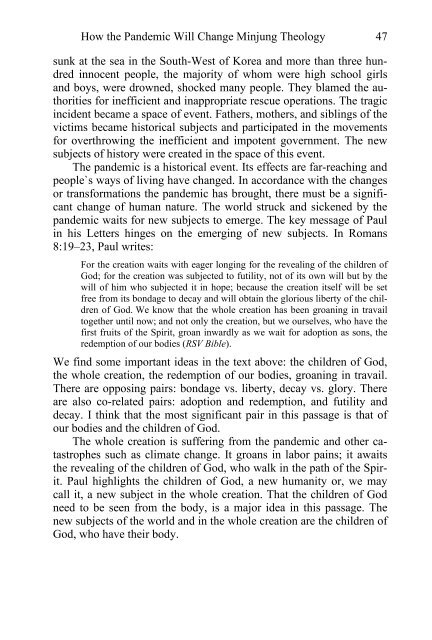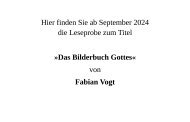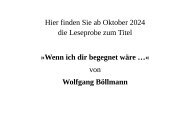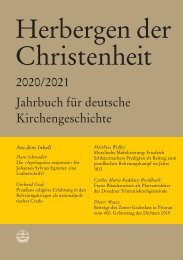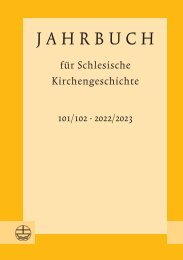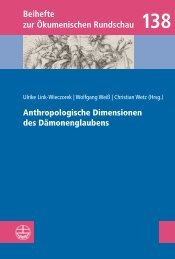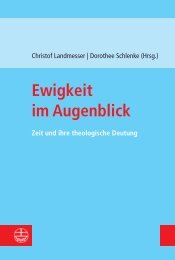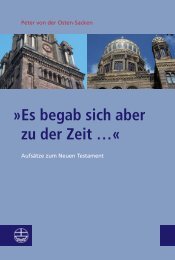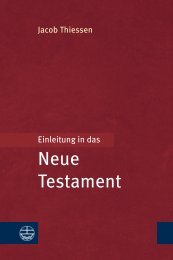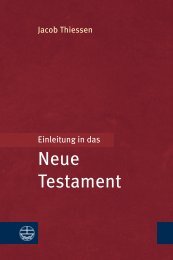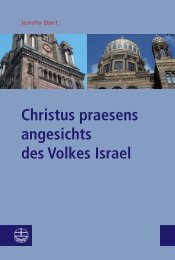Dorothea Erbele-Küster | Volker Küster (Eds.): Between Pandemonium and Pandemethics (Leseprobe)
This volume brings together contextual and intercultural responses to the Covid-19 Pandemic from theological and interreligious perspectives. It searches for models of interpretation provided by religious traditions and their sacred texts, and the ethical guidance religious communities offer for coping with the pandemic. The authors explore imaginative ways that transcend the New Normal towards a »Pantopia« that does not return to the pitfalls of the Old Normal but tackles the injustices that the virus has revealed in the current Pandemonium. They strive to enable their readers to react to the glocal pandemic and its aftermath theologically informed by intercultural and interreligious perspectives.
This volume brings together contextual and intercultural responses to the Covid-19 Pandemic from theological and interreligious perspectives. It searches for models of interpretation provided by religious traditions and their sacred texts, and the ethical guidance religious communities offer for coping with the pandemic. The authors explore imaginative ways that transcend the New Normal towards a »Pantopia« that does not return to the pitfalls of the Old Normal but tackles the injustices that the virus has revealed in the current Pandemonium. They strive to enable their readers to react to the glocal pandemic and its aftermath theologically informed by intercultural and interreligious perspectives.
Create successful ePaper yourself
Turn your PDF publications into a flip-book with our unique Google optimized e-Paper software.
How the P<strong>and</strong>emic Will Change Minjung Theology 47<br />
sunk at the sea in the South-West of Korea <strong>and</strong> more than three hundred<br />
innocent people, the majority of whom were high school girls<br />
<strong>and</strong> boys, were drowned, shocked many people. They blamed the authorities<br />
for inefficient <strong>and</strong> inappropriate rescue operations. The tragic<br />
incident became a space of event. Fathers, mothers, <strong>and</strong> siblings of the<br />
victims became historical subjects <strong>and</strong> participated in the movements<br />
for overthrowing the inefficient <strong>and</strong> impotent government. The new<br />
subjects of history were created in the space of this event.<br />
The p<strong>and</strong>emic is a historical event. Its effects are far-reaching <strong>and</strong><br />
people`s ways of living have changed. In accordance with the changes<br />
or transformations the p<strong>and</strong>emic has brought, there must be a significant<br />
change of human nature. The world struck <strong>and</strong> sickened by the<br />
p<strong>and</strong>emic waits for new subjects to emerge. The key message of Paul<br />
in his Letters hinges on the emerging of new subjects. In Romans<br />
8:19–23, Paul writes:<br />
For the creation waits with eager longing for the revealing of the children of<br />
God; for the creation was subjected to futility, not of its own will but by the<br />
will of him who subjected it in hope; because the creation itself will be set<br />
free from its bondage to decay <strong>and</strong> will obtain the glorious liberty of the children<br />
of God. We know that the whole creation has been groaning in travail<br />
together until now; <strong>and</strong> not only the creation, but we ourselves, who have the<br />
first fruits of the Spirit, groan inwardly as we wait for adoption as sons, the<br />
redemption of our bodies (RSV Bible).<br />
We find some important ideas in the text above: the children of God,<br />
the whole creation, the redemption of our bodies, groaning in travail.<br />
There are opposing pairs: bondage vs. liberty, decay vs. glory. There<br />
are also co-related pairs: adoption <strong>and</strong> redemption, <strong>and</strong> futility <strong>and</strong><br />
decay. I think that the most significant pair in this passage is that of<br />
our bodies <strong>and</strong> the children of God.<br />
The whole creation is suffering from the p<strong>and</strong>emic <strong>and</strong> other catastrophes<br />
such as climate change. It groans in labor pains; it awaits<br />
the revealing of the children of God, who walk in the path of the Spirit.<br />
Paul highlights the children of God, a new humanity or, we may<br />
call it, a new subject in the whole creation. That the children of God<br />
need to be seen from the body, is a major idea in this passage. The<br />
new subjects of the world <strong>and</strong> in the whole creation are the children of<br />
God, who have their body.


